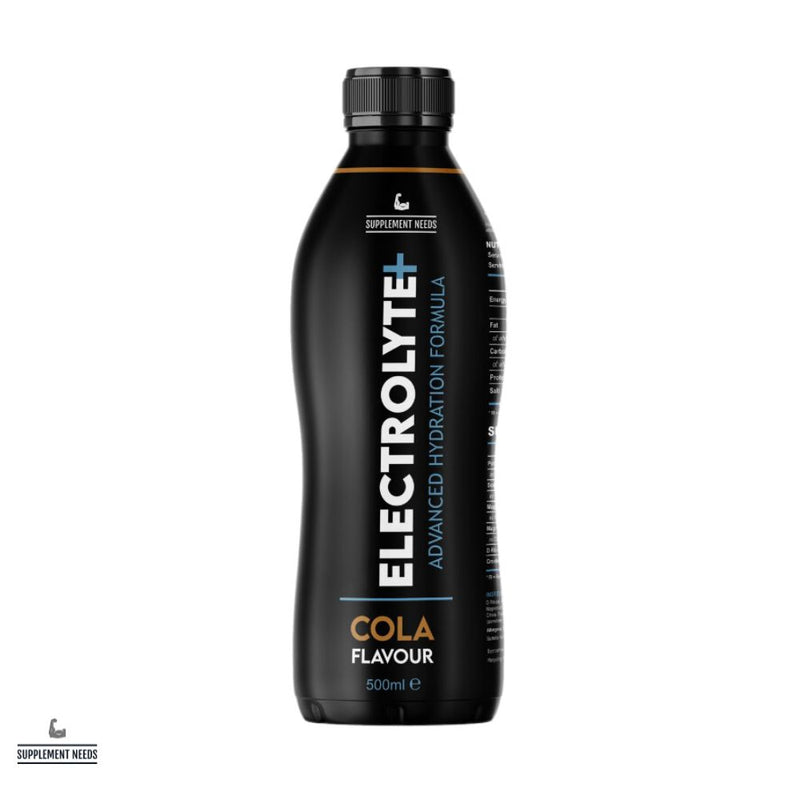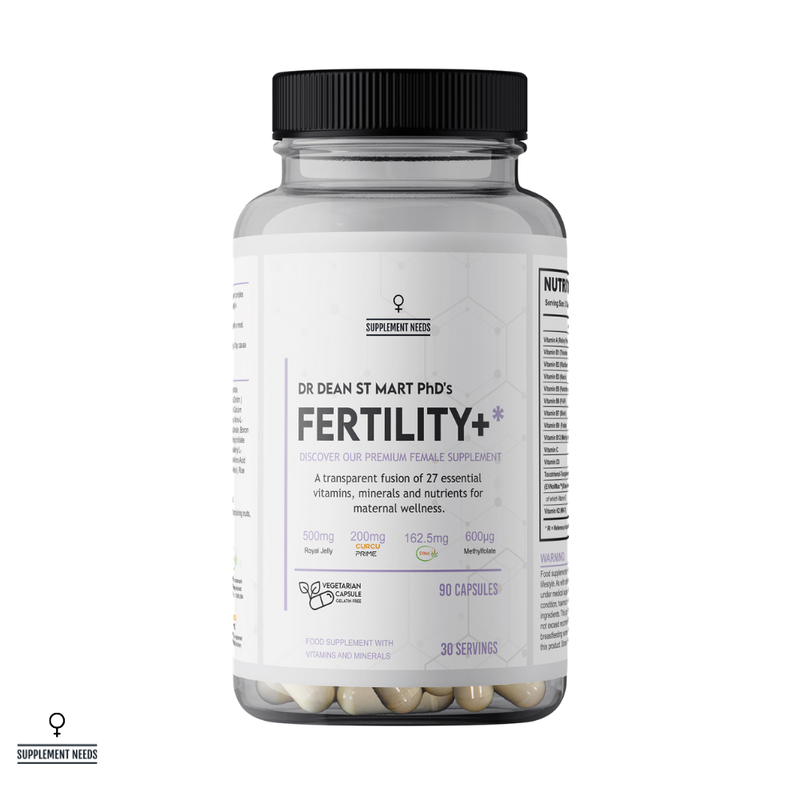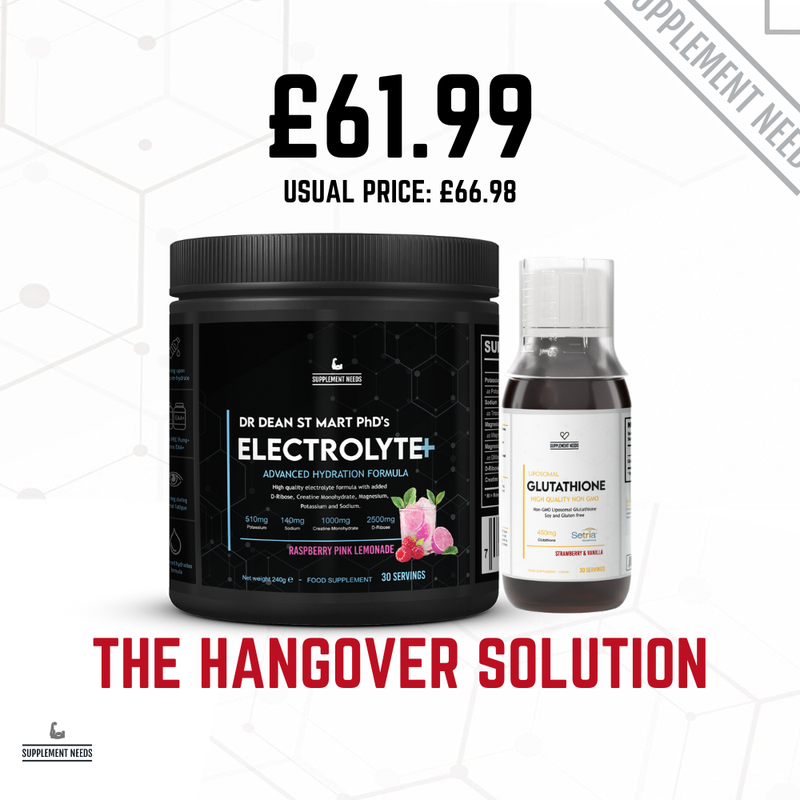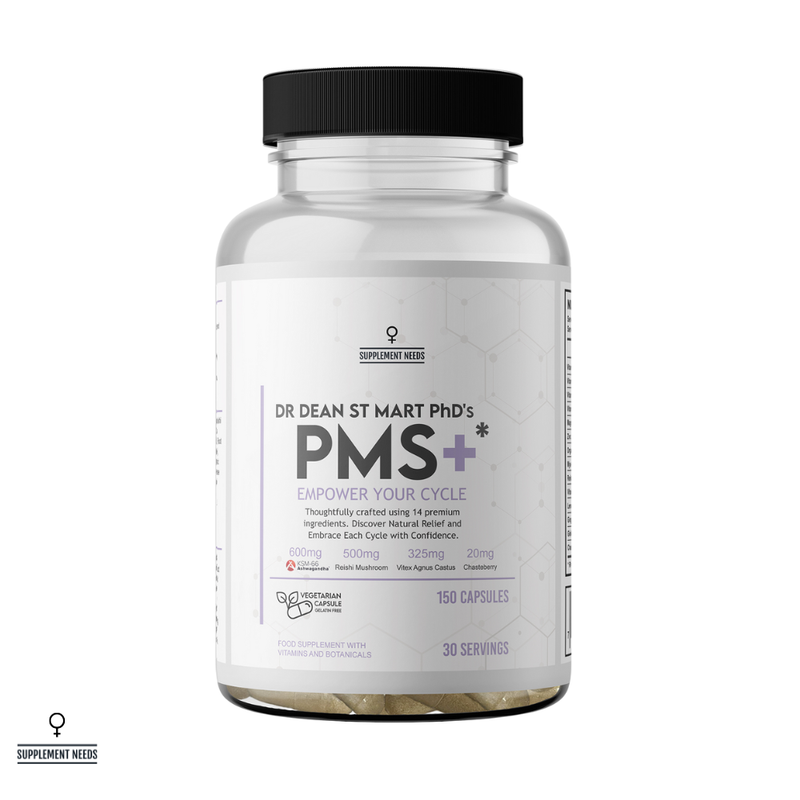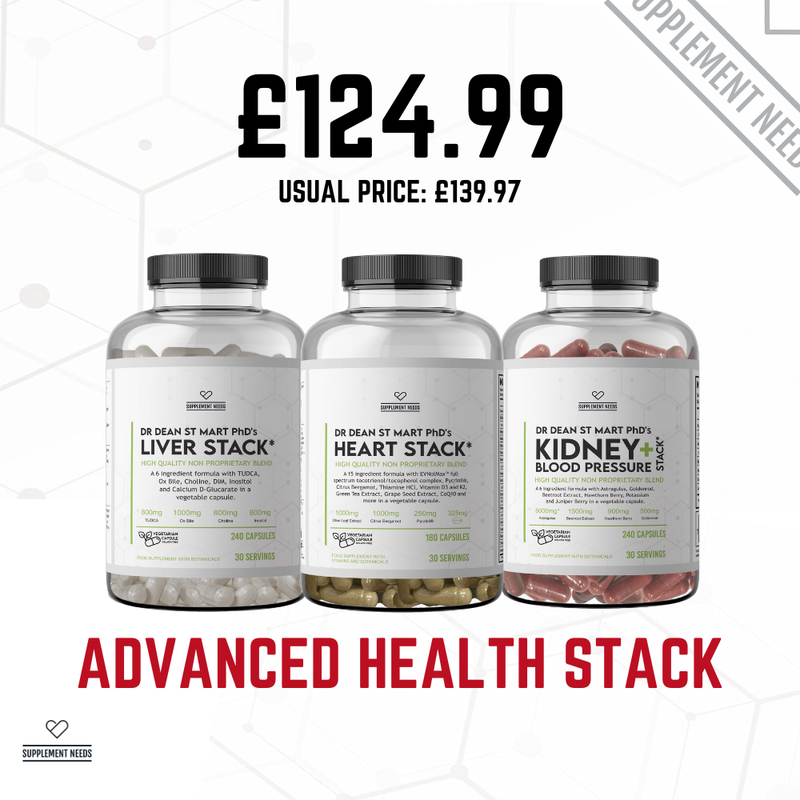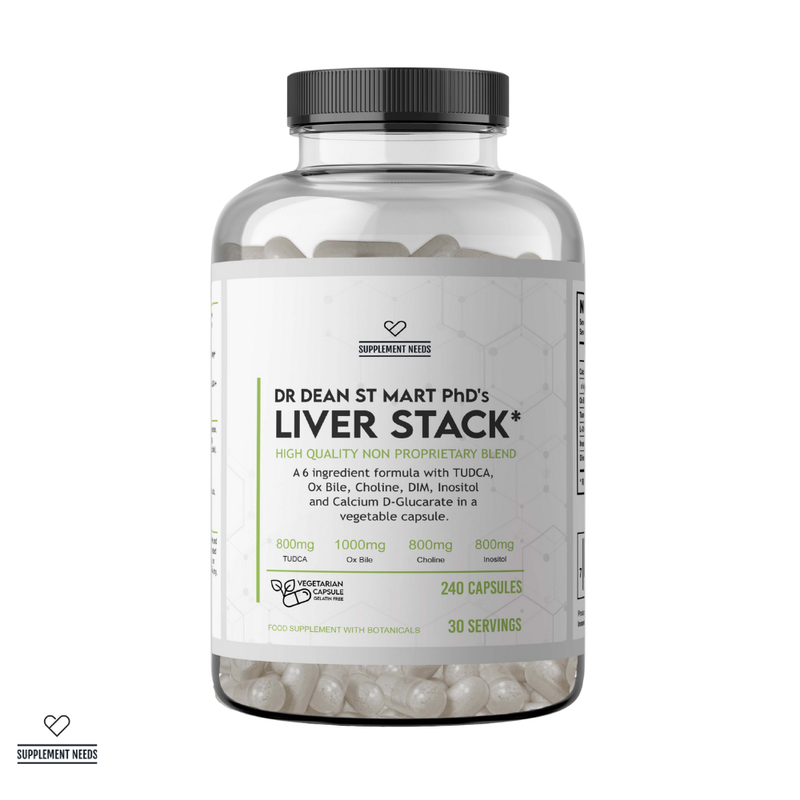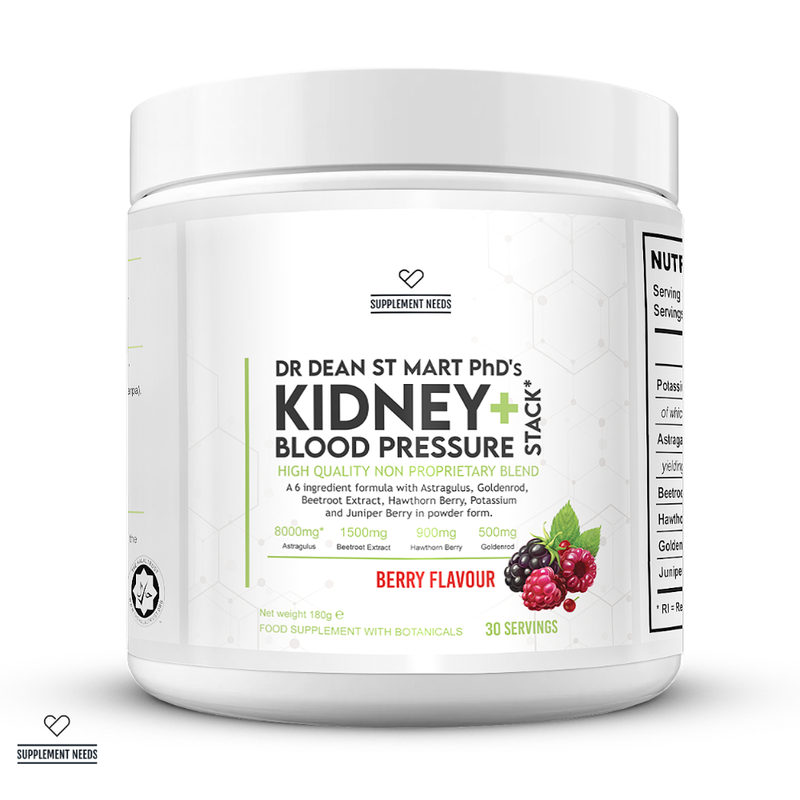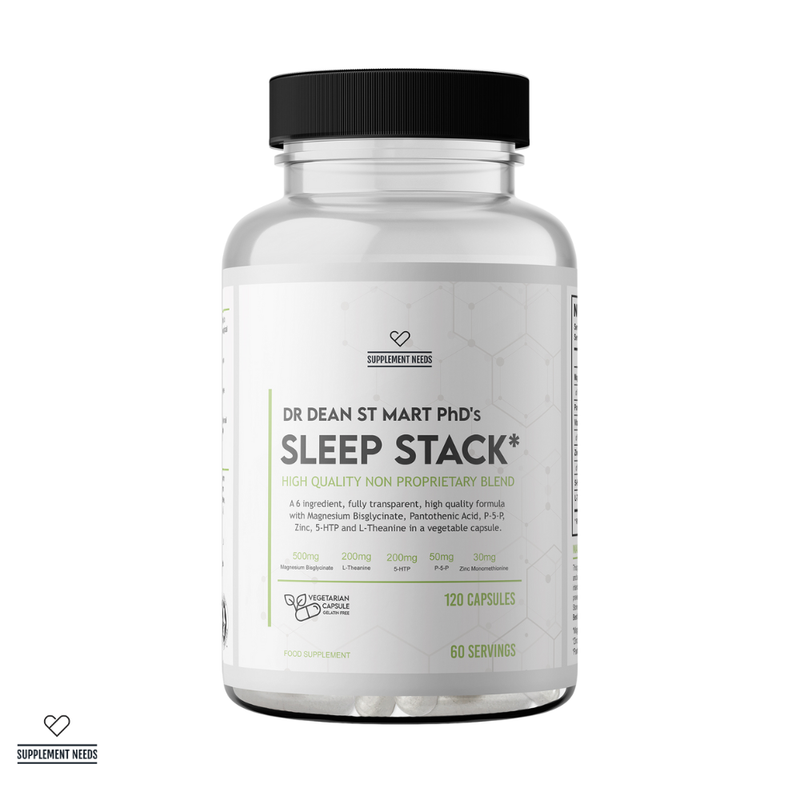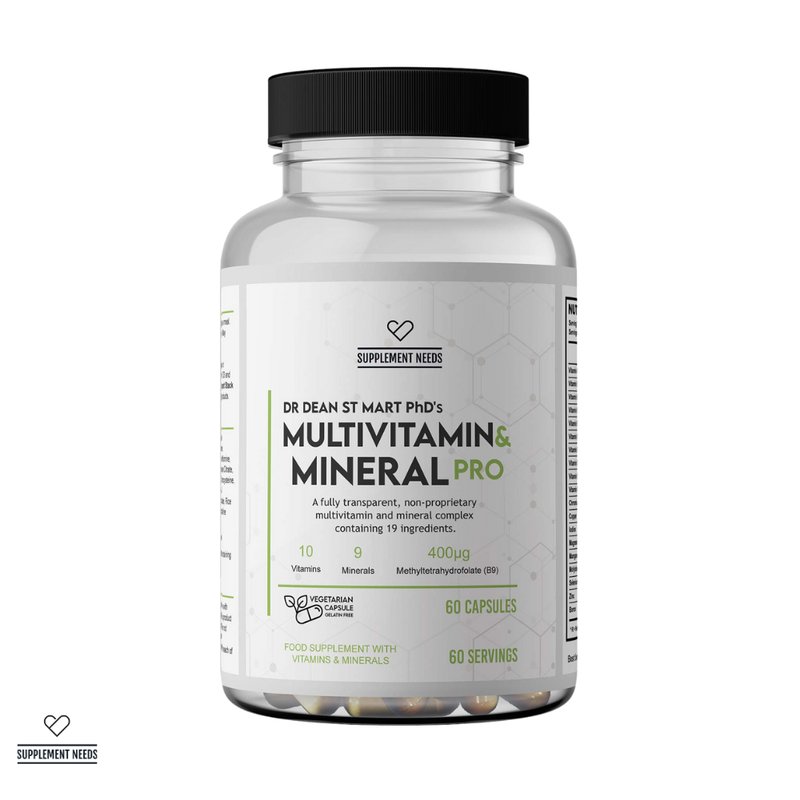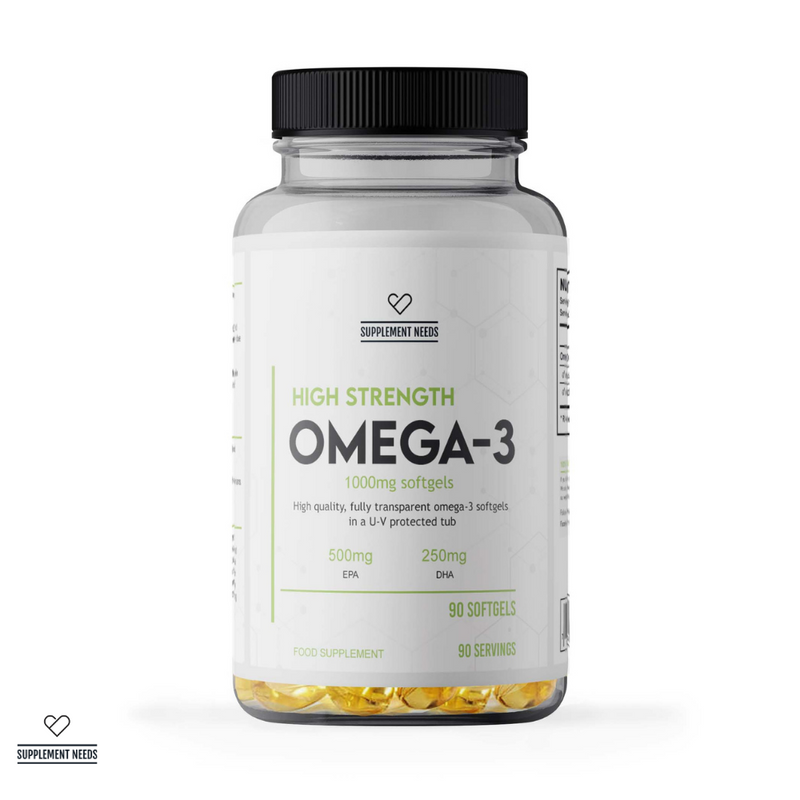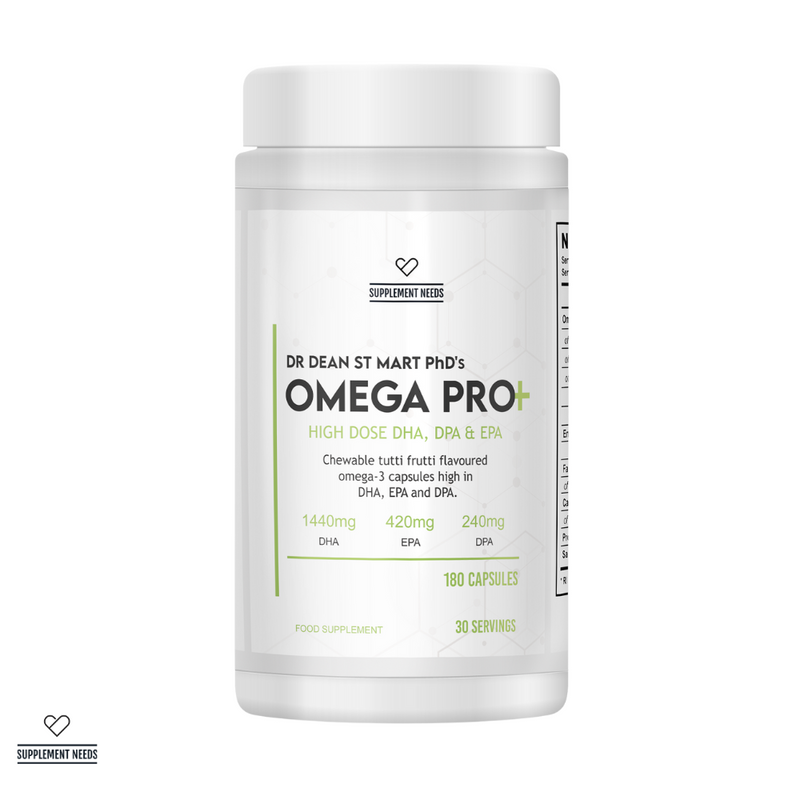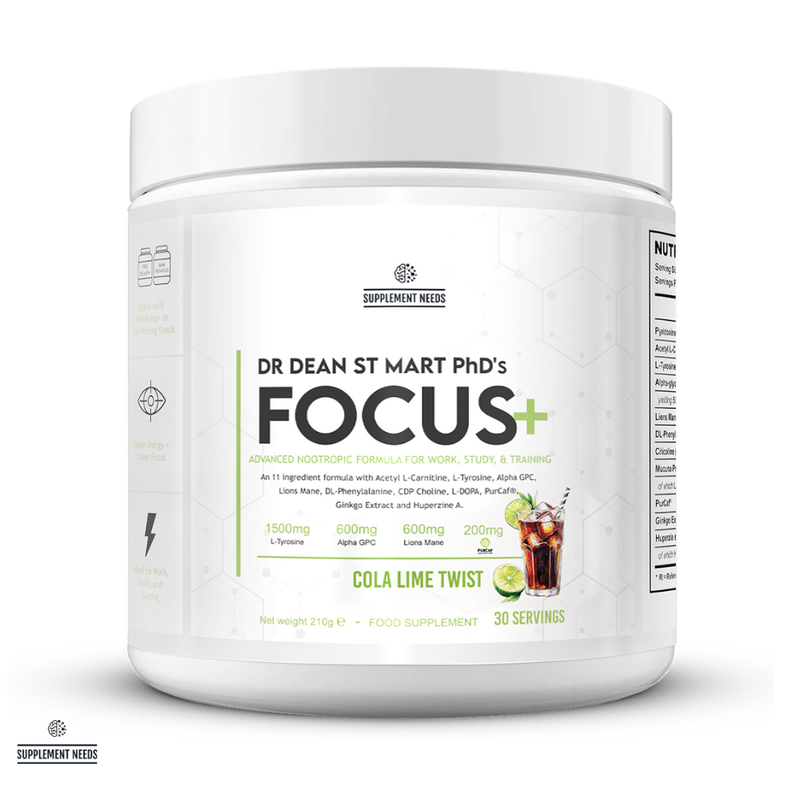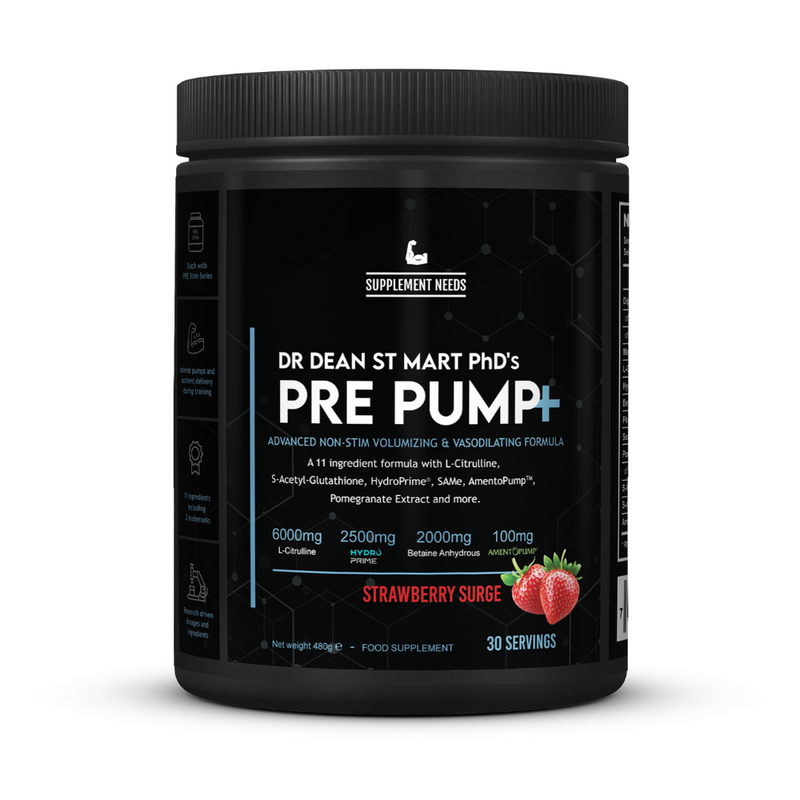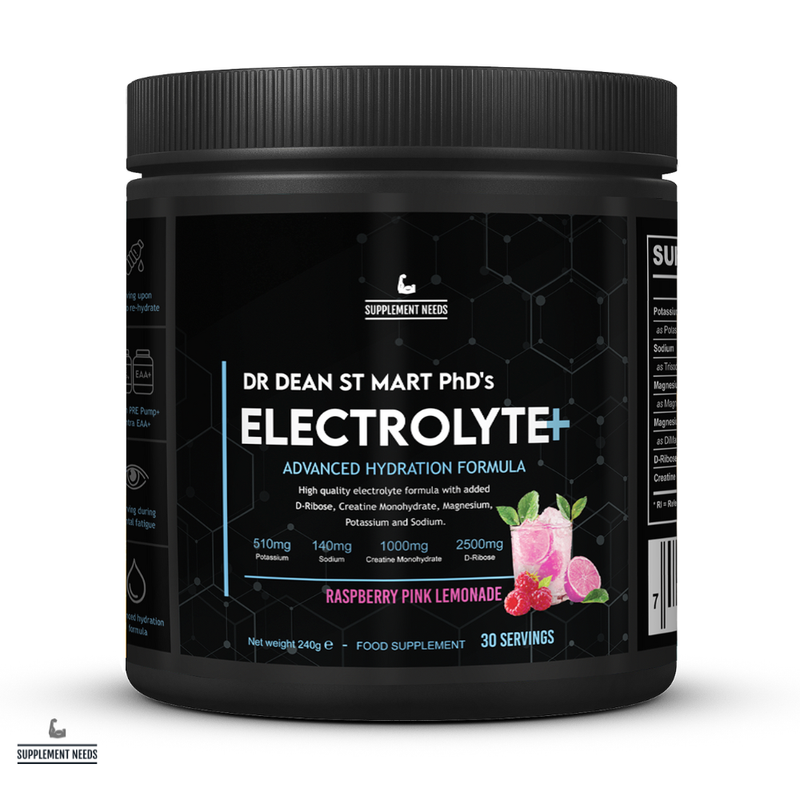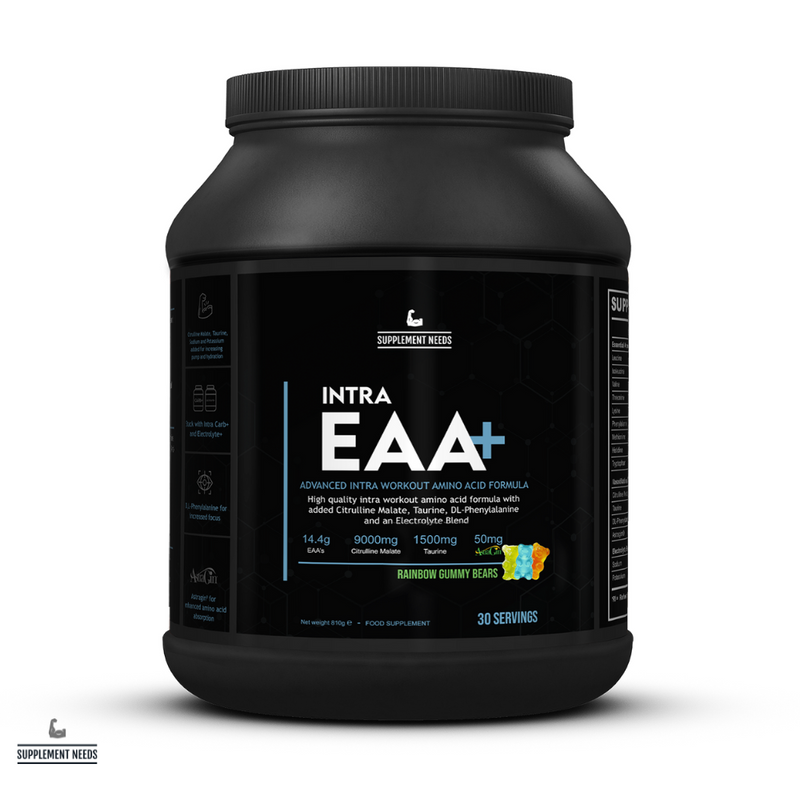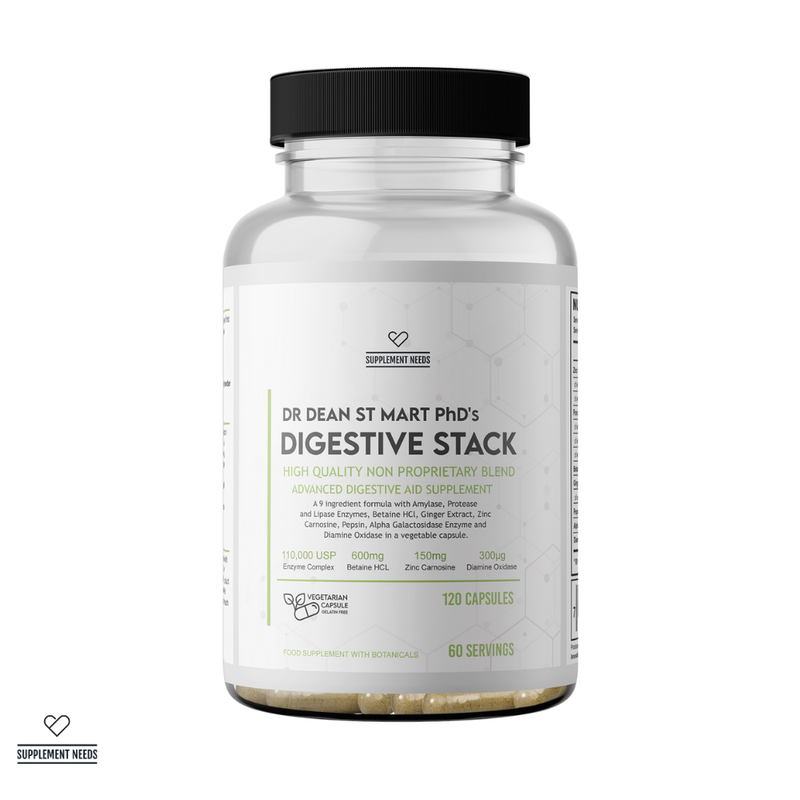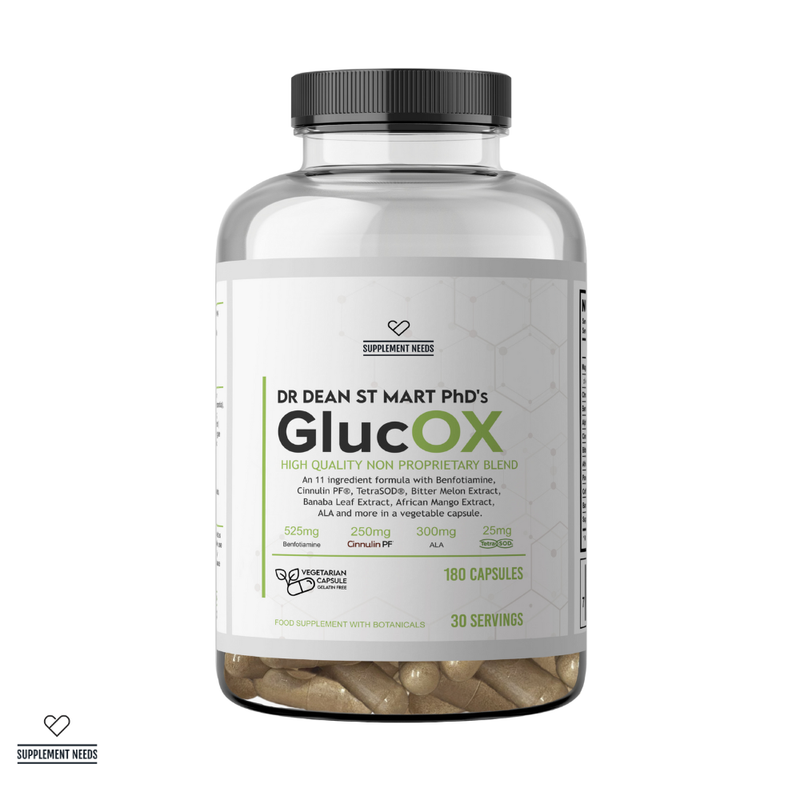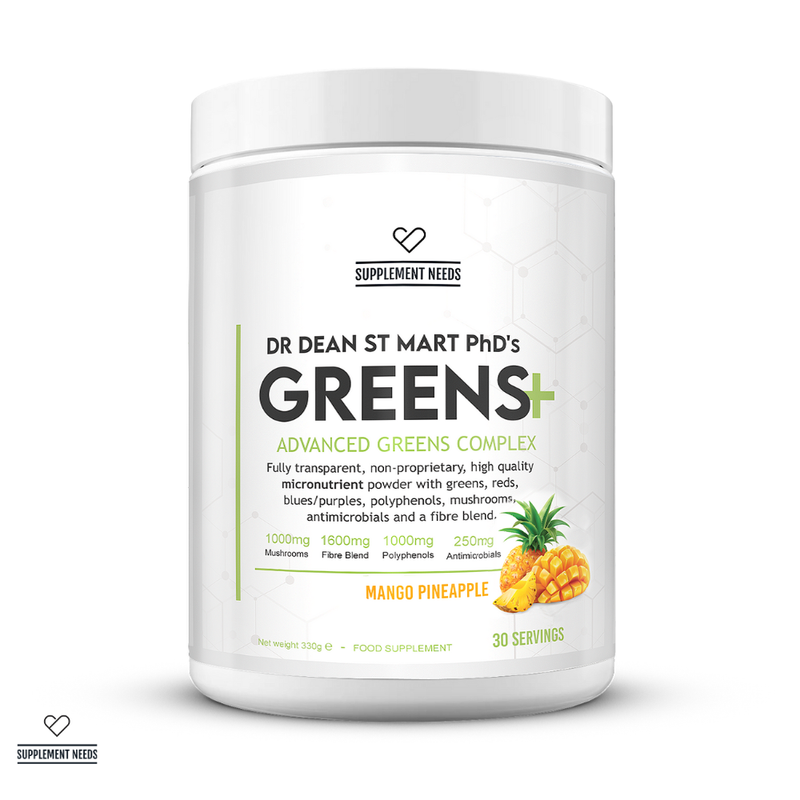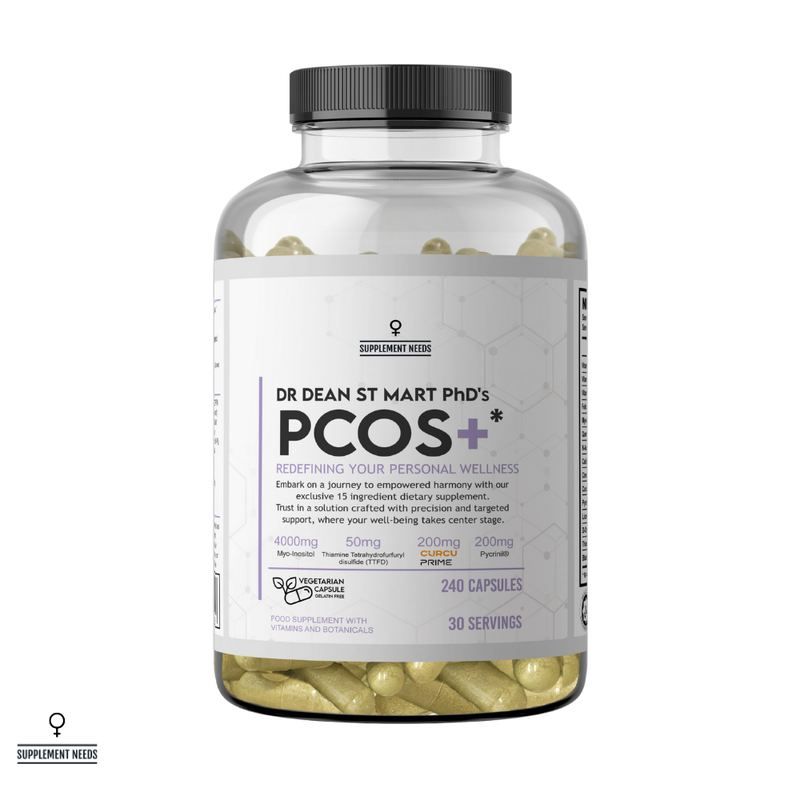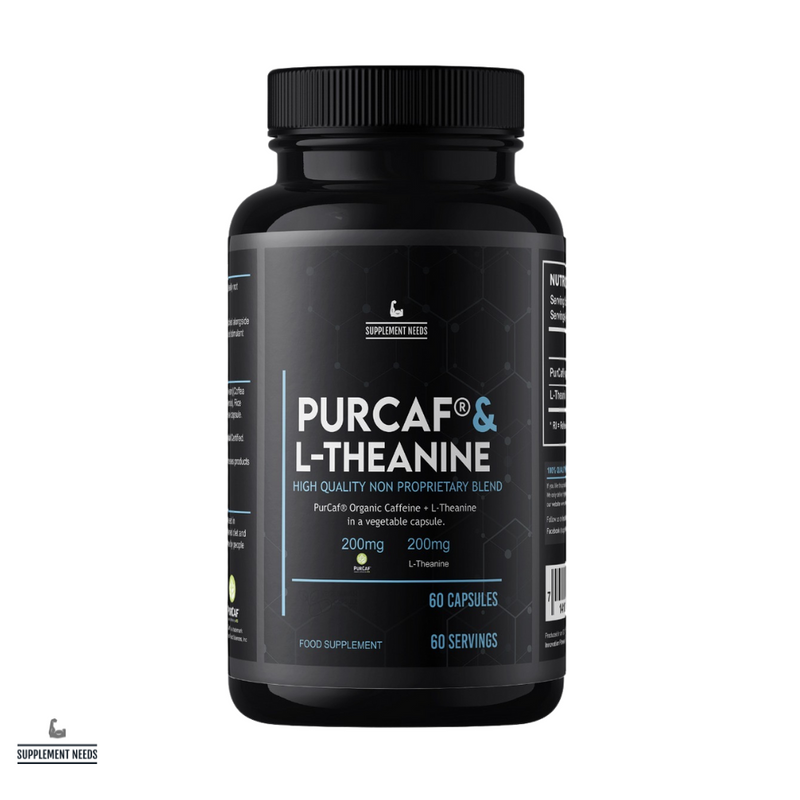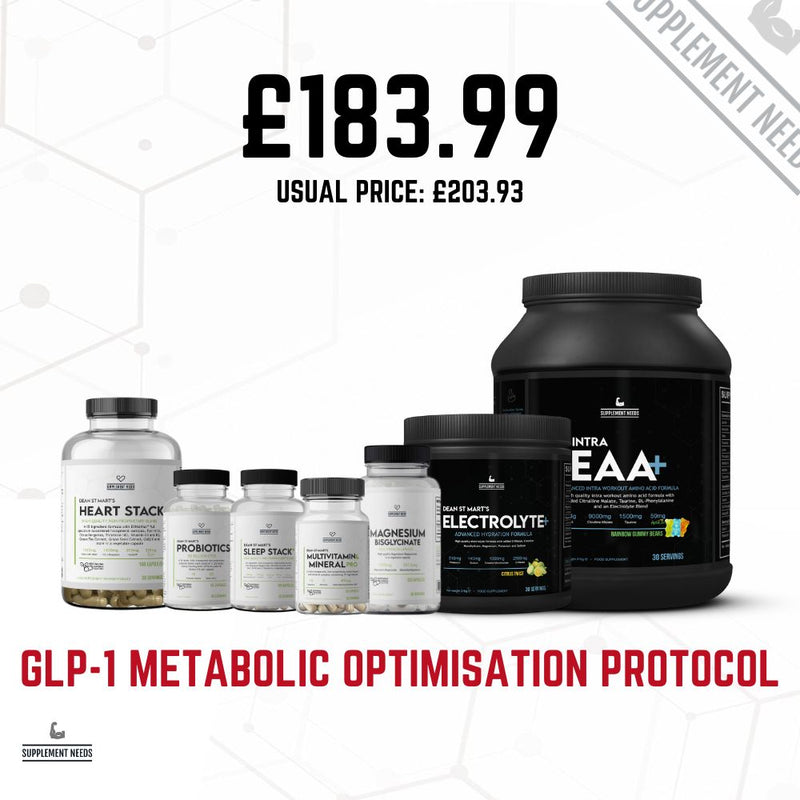For good or ill, Ozempic® has been hitting all the headlines lately, largely as a weight-loss aid. Because of this, there is a lot of misinformation, claims, and chaff to sift through to truly understand what this chemical is, and what it does in the body.
And, as the interest in Ozempic® has truly gained momentum, there is a parallel drive to discover if there is a natural alternative that may replicate the effects on the body - such as Berberine. It’s these two branches of the discussion we’re going to explore throughout this guide. Starting with the basics: what is Ozempic®?
What is Ozempic®?
To understand how an ingredient may be a natural alternative to Ozempic®, we have to look at the chemical first. So what exactly is Ozempic®?
Well, for starters, you need to know that the active ingredient isn’t even called Ozempic®. That’s the brand name the medication is sold under – much like Wegovy® and Rybelsus®, which are Ozempic-esque competitors. Each of these have their own ‘niche’ in the market, so to speak, as1:
-
Rybelsus® tablets are primarily targeted at adults with type 2 diabetes mellitus to improve their glycemic control.
-
Wegovy® injections have recently gained approval as weight-loss aids for people dealing with overweight or obesity - in conjunction with a calorie-deficit diet and exercise.
-
Ozempic® injections are intended for use alongside a healthy diet and exercise by adults with type 2 diabetes mellitus to help control their blood glucose levels. It has also shown promising indications of reducing the risk of “major adverse cardiovascular events” such as myocardial infarctions (heart attacks), and non-fatal strokes.
However, what we’re actually interested in here is a chemical called semaglutide. This is the primary ingredient of all three of the above brands, with only differences in dosage, indications, and preparation defining each product2.

Semaglutide: the real force behind Ozempic®
Scientifically, semaglutide is “a glucagon-like peptide-1 (GLP-1) receptor agonist”3 that has been approved by the FDA (US Food and Drug Administration) and the European Medicines Agency4 as a treatment for a selection of medical needs.
But what does this mean, and how does semaglutide work in the body?
As we said before, semaglutide is a GLP-1 agonist. In most cases, the body naturally creates GLP-1, along with another hormone called glucose-dependent insulinotropic polypeptide (or GIP)5. Both of these hormones help to stimulate postprandial insulin release - i.e. releasing insulin after meals when the body has ingested new glucose sources. Insulin itself is vital to transfer glucose from the bloodstream into cells, where it [the glucose] is then used as part of respiration to generate cellular energy.
However, in certain medical conditions like type 2 diabetes mellitus (T2DM), the body can develop insulin resistance; where insulin doesn’t work efficiently, or insulin absence; where the body cannot secrete its own insulin; or both. In these cases, pharmacological interventions such as GLP-1 agonists are able to stimulate insulin release instead – helping to manage blood glucose levels.
GLP-1 agonists, like semaglutide, are also capable of6:
-
Delaying gastric emptying. Or, to put more simply, they can slow how long it takes food to leave the stomach, which helps to slow down the breakdown and release of glucose into the bloodstream. This can also help you feel fuller for longer.
-
Inhibiting glucagon production. Glucagon is a hormone that tells the liver to release glucose stores, in order to increase blood sugar levels when they’re deemed too low. Stopping this helps to regulate blood sugar more effectively (and reduce blood sugar spikes).
-
Decreasing pancreatic β-cell apoptosis and increasing their proliferation. Pancreatic β-cells are vital for glucose homeostasis (balance) as they are the primary source of insulin7. Reducing apoptosis, or cell death, while increasing proliferation, or cellular reproduction, helps to regulate blood glucose levels.
-
Mitigating hunger impulses and cravings. The interaction of semaglutide with the GLP-1 receptors in the hypothalamus has been suggested to reduce feelings of hunger and cravings, alongside enhancing feelings of satiety. Each of these combine to potentially help with weight loss8.
As a pharmacological intervention therefore, semaglutide - under a range of brand names - has been shown to be effective for blood glucose management.
Are there natural alternatives to semaglutide?
But, are there any natural alternatives that could support your health and wellbeing in a similar way? While there is always a time and a place for medical intervention, sometimes you can benefit from other ingredients that have been used and trusted for centuries as part of traditional medicine. These non-hormonal ingredients have come to be known as GDAs, or Glucose Disposal Agents.
A note on GDAs
Many medicines have been developed to help manage bodily functions - for example, in the case of semaglutide, to encourage insulin secretion. And these are essential for millions of people around the world to support their quality of life and overall health and wellbeing.
However, there are some non-hormonal supplements, like Glucose Disposal Agents (GDAs) that can copy the function of insulin by helping to manage your blood glucose levels. These supplements are designed to enhance the natural way your body deals with excess glucose from the bloodstream, by either:
-
Helping to convert it into glycogen for storage to meet future energy demands.
-
Assisting in the filtering out and removal via the kidneys.
Depending on your personal health and circumstances, these can help to support your natural bodily processes and improve the way your body handles a surplus of glucose.
Note: it’s important to understand here that these supplements do not make the body release more insulin, or impact your insulin systems in any way. Instead, they are insulin mimics, which means they copy the end result of insulin - i.e. helping to control your blood sugar.
Note: always consult with your doctor before embarking on any treatment plan.
There are many examples of GDAs available within the supplement market. In fact, here at Supplement Needs we have an excellent collection of expertly-researched GDA supplements. But, there is another ingredient that may be of interest, called Berberine.
Berberine: what is it?
So, what is Berberine?
Let’s start with the scientific definition, which states that “Berberine is a quaternary ammonium salt from the protoBerberine group of benzylisoquinoline alkaloids”9.
To put this more simply, we can break down each of these categories to get to the root of what Berberine is:
-
Quaternary ammonium salts are compounds made up of a central nitrogen atom bonded to four other organic groups, making it positively charged. They are strongly antimicrobial.
-
Benzylisoquinoline alkaloids10 (BIAs) are a type of plant metabolite (a byproduct of energy generation) that have a range of properties. Some examples include:
-
Analgesics, or painkillers, like morphine and codeine.
-
Antimicrobials like Berberine.
-
Antivirals like cepharanthine.
Altogether, a simpler description of Berberine is that it’s a naturally-derived substance that shows strong antimicrobial properties. Berberine is found in a wide variety of plants, primarily from the genus Berberis; such as goldenseal (hydrastis canadensis), barberry (berberis vulgaris), and Oregon grape aka holly-leaved barberry (berberis aquifolium)11.

It also exhibits some positive effects on the body surrounding glucose and weight management, which we explore in more detail further into this article.
Historic uses of Berberine
Berberine has been a staple of both traditional Chinese medicinal practices, and Ayurvedic medicine, for thousands of years. It’s historically been used to treat a wide range of conditions, including but not limited to12:
-
Inflammation.
-
Bacterial infections, such as eye, ear, and mouth infections.
-
Diabetes.
-
Constipation.
-
Wound healing.
-
Ulcers.
While some of the use cases have changed over the years, there is some clear evidence for Berberine impacting different conditions within the body…
Berberine: mechanisms of action
As a medicinal plant derivative, Berberine has been widely studied to understand the potential value it can have as a nutraceutical component and nutritional supplement. Some of the most promising qualities include:
-
Glucose regulation: both animal studies and clinical testing have shown that Berberine has a clear role in lowering blood glucose levels and improving related metabolic disorders (such as T2DM)13.
-
While the exact mechanism of action is not fully confirmed, research suggests that Berberine acts in part by improving the “physiological stimulation of glucose via cascade reaction of insulin-like growth factor-1 (IGF-1)”14. Similar to insulin, IGF-1 can help to improve glucose oxidation (where it’s turned into ATP for energy), reduce insulin resistance, and support efficient blood glucose management.
-
Berberine has classically been compared to Metformin due to the effects on insulin resistance, hyperlipidemia, and obesity15.
-
Metformin is a biguanide commonly used in the treatment of diabetes, as it reduces the amount of glucose produced by the liver. It also activates AMPK, which can encourage cellular glucose uptake, and can reduce insulin resistance16, so what is released can work more efficiently. This assists with blood glucose control.
-
Lipid metabolism: in addition to potentially helping to manage blood glucose levels, Berberine has been shown to improve blood lipid metabolism. Or, more simply, Berberine may help to reduce the levels of fat cells in your blood. This is important for reducing cholesterol and improving the function of your circulatory system.
-
In a recent study, Berberine was shown to reduce low-density lipoproteins (LDL), which is the so-called ‘bad’ cholesterol, total cholesterol, triglycerides, and apolipoproteins (which help to maintain the structure of fatty acids in the blood). It also appeared to increase high-density lipoproteins, the ‘good’ cholesterol, with sex-specific differences - with there being a larger benefit for women than men17.
-
Cardiovascular benefits: Berberine has been shown to offer cardioprotective qualities. Research suggests that Berberine can help with18:
-
Heart contractility: the results of one study showed that the benefits of increased left ventricular ejection fraction (LVEF) were in direct proportion to the plasma concentration of Berberine in people with heart failure or tachycardia (irregular heart rhythms). To put this another way, Berberine was shown to help improve how well the heart can contract - and therefore pump blood around the body - as part of a treatment programme.
-
Cardioprotective: Berberine can also be protective under ischemic conditions. Ischemia is where blood flow is restricted or stopped, and can have severe consequences. According to research, Berberine has been shown to activate the PI3K (phosphoinositide 3-kinase)/AKT pathway, which may help to compensate for limited blood flow and mitigate any damages.
-
Weight loss: Berberine has recently come under review as a weight loss aid to help with obesity and related conditions. Studies suggest that Berberine may support weight loss via19:
-
Increasing brown adipose tissue (BAT): brown adipose tissue is important for non-shivering thermoregulation, which helps to keep us warm. As a consequence, brown fat tissues are more metabolically active, which means they burn more calories for energy than other types of fat. They have also been shown to improve insulin resistance.
There is also some preliminary evidence to suggest that Berberine may be hepatoprotective (the liver), and nephroprotective (the kidneys) through its antioxidant and anti-inflammatory properties20.
Supplement Needs Berberine HCL
If you’re considering adding Berberine to your diet, you should go straight for the best - and that’s Supplement Needs. Our Berberine HCL capsules are expertly formulated to offer you the best support. In fact, there are several reasons you should choose our Berberine supplements, including:
-
Our formula is 97% Berberine hydrochloride. This form has been chemically altered into an alkaloid salt to increase oral bioavailability, so you can get maximum benefit from each capsule.
-
Our capsules are vegetarian and Halal certified to suit people with a range of dietary needs and practices.
-
For comprehensive blood sugar management, our Berberine HCL can be stacked with GLUCOX.

The key differences between Ozempic® and Berberine
Ozempic® (containing semaglutide) and Berberine both have a range of beneficial properties for the body - from support with glucose regulation and weight loss, to improved lipid metabolism. However, there are some key differences between the two, which we have highlighted in the table below:
|
Characteristic |
Ozempic® |
Berberine |
|
Origin |
Synthetically-made chemical |
Naturally-derived plant metabolite |
|
Chemical Nature |
Glucagon-like peptide-1 receptor agonist |
Natural benzylisoquinoline alkaloid |
|
Mechanism of Action |
|
|
|
Regulatory Status |
Strictly regulated by governmental bodies such as the FDA, EMA. Prescription-only medicine |
Recognised nutraceutical supplement Available over-the-counter |
|
Use Context |
Approved in 2017 as a treatment for T2DM |
Used in traditional medicinal practices around the globe for thousands of years |
|
Intake Method |
Administered via weekly injection |
Typically, oral administration via tablet |
|
Risks & Side Effects |
Potential side effects include:
|
Potential side effects include:
|
Looking at these products side-by-side, it’s fair to say that Berberine has some potential positive qualities to support your health and blood glucose management. Whilst not a direct alternative for semaglutide-based medications such as Ozempic®, many people may find Berberine supplementation useful.
However, this should be considered on a case by case basis depending on your individual situation.
Choosing the best Berberine supplements
When it comes to choosing a natural supplement, you deserve the best. So, if you’re going to add Berberine to your routine, make sure you look out for markers of quality.
At Supplement Needs, we recommend looking out for the following:
-
💪 Only practical ingredients: the best, high-quality supplements only contain valuable ingredients that will have a positive effect on your body. At Supplement Needs, our Berberine supplements are specifically formulated so that every component has a practical use in supporting your wellbeing.
-
🔍 Total ingredient transparency: when you’re incorporating new or additional supplements into your diet, you should always know what you’re putting in your body. We ensure that we (and therefore you) know the source of every ingredient we use, such as exactly which part of the plant an extract is from, and what chemical form it may be in.
-
⚙️ Quality manufacturing: at Supplement Needs, all of our products - such as our Berberine - are manufactured in the UK according to exacting Good Manufacturing Practice (GMP) and global ISO standards that emphasise safety, quality, and consistency.
-
🎓 Expert knowledge: all of our supplements are backed by extensive research and data-driven analyses conducted and backed by Dr. Dean St Mart PhD. With a double first class honours in Chemistry and Pharmaceutical Chemistry, and a PhD in Synthetic Organic Chemistry and Fluorescence Spectroscopy, Dr Dean has the experience and knowledge to make sure you’re getting the best.
Discover nutritional support with Supplement Needs
At Supplement Needs, we have a broad collection of premium health, wellbeing, and fitness supplements for you to choose between. Explore our collections today, including Liver Health, Digestion Support, and Sleep Supplements…
Buy Supplement Needs Berberine now
For more insights and information about supplements, read the Supplement Needs blog…
What Supplements Should Vegans Take? | Everything You Need to Know About Curcumin | What is Ashwaganda & What Does it Do?
Disclaimer
The information on this website should not be used as a substitute for professional medical care or advice. If you have questions about your health, please contact your doctor.
References
1. Kommu, S,. & Whitfield, P., 2024, ‘Semaglutide’, StatPearls [Internet]. Available at: https://www.ncbi.nlm.nih.gov/books/NBK603723/. Accessed on 14th May 2025.
2. ibid.
3. ibid.
4. European Medicines Agency Online, 2025, ‘Ozempic’. Available at: https://www.ema.europa.eu/en/medicines/human/EPAR/ozempic. Accessed on 14th May 2025.
5. Collins, L., & Costello, R.A., 2024, ‘Glucagon-Like Peptide-1 Receptor Agonists’, StatPearls [Internet]. Available at: https://www.ncbi.nlm.nih.gov/books/NBK551568/. Accessed on 14th May 2025.
6. ibid.
7. Bartolomé, A., 2023, ‘The Pancreatic Beta Cell: Editorial’, Biomolecules, 13(3):495. Available at: https://pmc.ncbi.nlm.nih.gov/articles/PMC10046343/. Accessed on 14th May 2025.
8. Kommu, S., & Whitfield, P., 2024, ‘Semaglutide’, StatPearls [Internet]. Available at: https://www.ncbi.nlm.nih.gov/books/NBK603723/. Accessed on 14th May 2025.
9. Chemical Entities of Biological Interest (ChEBI) Online, 2021, ‘CHEBI:16118 - Berberine’. Available at: https://www.ebi.ac.uk/chebi/searchId.do?chebiId=CHEBI:16118. Accessed on 14th May 2025.
10. Zhao, W., Liu, J., & Chen, Y., 2025, ‘Advances in the biosynthesis of naturally occurring benzylisoquinoline alkaloids’, Front. Plant. Sci., 16. Available at: https://www.frontiersin.org/journals/plant-science/articles/10.3389/fpls.2025.1548471/full. Accessed on 14th May 2025.
11. National Center for Complementary and Integrative Health Online, 2023, ‘Berberine and Weight Loss: What You Need to Know’. Available at: https://www.nccih.nih.gov/health/Berberine-and-weight-loss-what-you-need-to-know. Accessed on 14th May 2025.
12. Neag, M.S., et al., 2018, ‘Berberine: Botanical Occurrence, Traditional Uses, Extraction Methods, and Relevance in Cardiovascular, Metabolic, Hepatic, and Renal Disorders’, Front Pharmacol., 9:557. Available at: https://pmc.ncbi.nlm.nih.gov/articles/PMC6111450/. Accessed on 14th May 2025.
13. Li, M., et al., 2019, Berberine alleviates hyperglycemia by targeting hepatic glucokinase in diabetic db/db mice’, Sci Rep., 9:8003. Available at: https://pmc.ncbi.nlm.nih.gov/articles/PMC6541623/. Accessed on 14th May 2025.
14. Cao, C., & Su, M., 2019, ‘Effects of Berberine on glucose-lipid metabolism, inflammatory factors and insulin resistance in patients with metabolic syndrome’, Exp Ther Med., 17(4):3009-3014. Available at: https://pmc.ncbi.nlm.nih.gov/articles/PMC6434235/. Accessed on 14th May 2025.
15. Guo, H-H., et al., 2023, ‘Berberine is a potential alternative for metformin with good regulatory effect on lipids in treating metabolic diseases’, Biomedicine & Pharmacotherapy, 163:114754. Available at: https://www.sciencedirect.com/science/article/pii/S0753332223005437. Accessed on 4th June 2025.
16. Cleveland Clinic Online, 2023, ‘Biguanides’. Available at: https://my.clevelandclinic.org/health/treatments/25004-biguanides. Accessed on 4th June 2025.
17. Blais, J., Huang, X., & Zhao, J.V., 2023, ‘Overall and Sex-Specific Effect of Berberine for the Treatment of Dyslipidemia in Adults: A Systematic Review and Meta-Analysis of Randomized Placebo-Controlled Trials’, Drugs., 83(5):403-427. Available at: https://pubmed.ncbi.nlm.nih.gov/36941490/. Accessed on 14th May 2025.
18. Neag, M.S., et al., 2018, ‘Berberine: Botanical Occurrence, Traditional Uses, Extraction Methods, and Relevance in Cardiovascular, Metabolic, Hepatic, and Renal Disorders’, Front Pharmacol., 9:557. Available at: https://pmc.ncbi.nlm.nih.gov/articles/PMC6111450/. Accessed on 14th May 2025.
19. Ilyas, Z., et al., 2020, ‘The effect of Berberine on weight loss in order to prevent obesity: A systematic review’, Biomedicine & Pharmacotherapy, 127. Available at: https://www.sciencedirect.com/science/article/pii/S0753332220303292. Accessed on 14th May 2025.
20. ibid.
